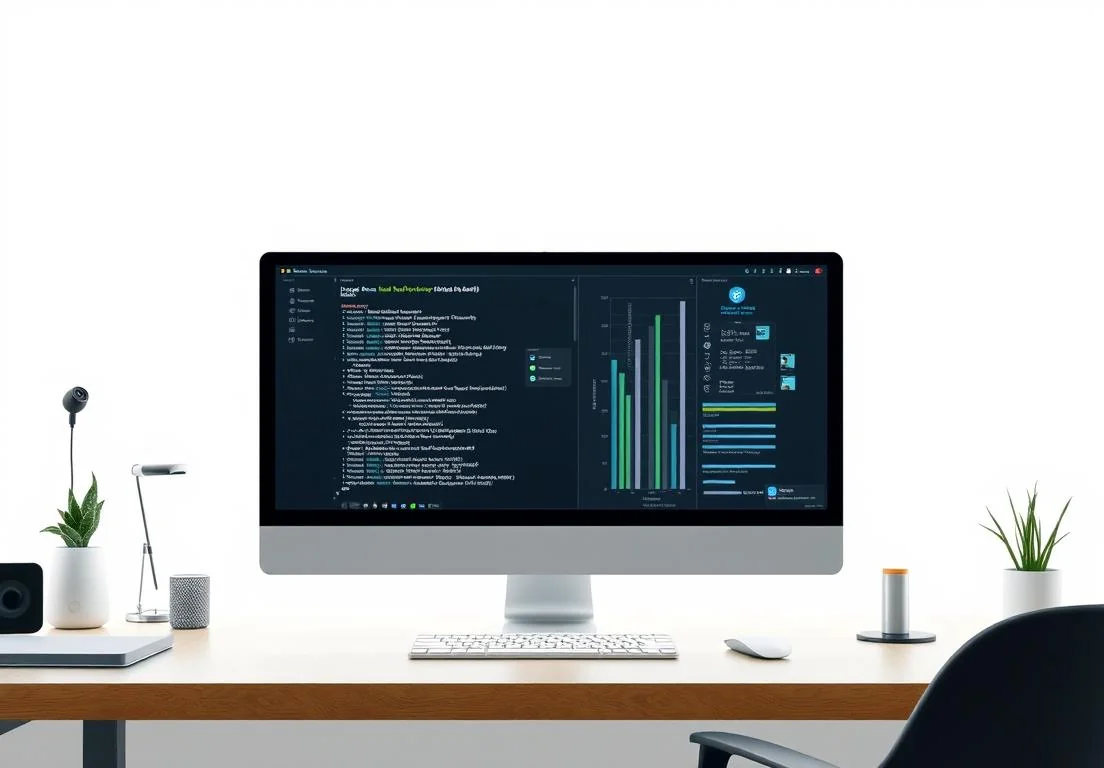Disclaimer: Some links in this article may earn us a commission at no cost to you. Learn more in our privacy policy.
In the growing tech landscape of Canada, the demand for skilled software developers is at an all-time high. But what if you’re looking to break into this field without a traditional job?
To become a software developer in Canada without securing a standard job, focus on building your skills through self-study, online courses, personal projects, and contributing to open-source initiatives. Networking within the tech community and showcasing your work portfolio online can significantly enhance your chances. There’s much more to uncover about navigating this unique path successfully, so keep reading for valuable insights and tips!
Key Takeaways:
- Focus on building practical skills through online courses, personal projects, and contributions to open-source initiatives.
- Actively engage with the tech community through networking, hackathons, and by sharing your work online.
- Stay updated on industry trends and continuously learn new technologies to maintain a competitive edge.
Map Your Learning Journey
Choosing the right programming languages and technologies can make all the difference in your development journey. In Canada, there’s a strong demand for JavaScript, especially with frameworks like React and Vue.js for front-end development.
If you’re leaning towards back-end, Python and Java are safe bets, known for their versatility and application in various industries.
Don’t overlook SQL as well; understanding databases is crucial for almost every developer. Moreover, knowledge of emerging technologies such as cloud computing (particularly platforms like AWS and Azure) can significantly boost your employability.
Keeping an eye on industry trends through resources like GitHub, HackerRank, or local tech meetups can give you additional direction on what skills to build next.
Take time to create a roadmap based on your interests; for instance, if you’re keen on mobile applications, Swift for iOS or Kotlin for Android should be on your radar. It’s smart to focus on a combination of languages and technologies that align with your skills, desired projects, and market demand.
Leverage Online Learning Platforms
Online learning has reinvented how we approach education, and there’s a wealth of resources for aspiring software developers. Platforms like Coursera, Udacity, and edX offer a plethora of courses and nanodegrees that can deepen your knowledge in software development.
If you prefer a more structured approach, Codecademy and freeCodeCamp provide interactive coding lessons that are perfect for beginners. For those seeking certification, consider specialized programs on platforms like LinkedIn Learning or Pluralsight, which can lend a certain credibility to your resume.
One unique angle is the rise of community-driven platforms like Udemy and Skillshare, where you can often find bespoke courses taught by industry professionals. These platforms not only allow for flexible learning but often include project-based assessments that can bolster your portfolio. Don’t shy away from engaging with forums and communities related to these courses; they’re fantastic for networking and gathering insights from peers on your learning journey.
Build Personal Projects
Personal projects are your ticket to showcasing your coding skills and creativity. They speak louder than a resume, especially when you’re looking to break into software development without prior job experience. The key is to focus on projects that not only interest you but also highlight your strengths.
Choose a Domain : Think about industries or problems you’re passionate about. Whether it’s a weather app, a productivity tool, or a game, pick something that excites you.
Development Process : Document your coding process. Create a GitHub repository where others can see your progress, insights, and coding habits. This transparency shows potential employers your problem-solving skills and thought processes.
User Experience Matters : When building your project, keep usability in mind. Simple design can make a big difference. Tools like Figma can help you sketch out user interfaces before you dive into coding.
“Include Test Cases” : Show that you understand quality assurance by writing test cases.
Share Your Work : Don’t hide your projects. Create a simple website or use platforms like GitHub Pages to showcase your work. Include a case study for each project detailing what you did, how you overcame challenges, and what technologies you used.
Get Feedback : Once your project is live, reach out to peers or mentors for feedback. Use platforms like Reddit or join Discord developer communities. Constructive criticism can lead to valuable improvements.
Engage with Open Source Communities
Joining open-source projects is a gratifying way to sharpen your skills and meet fellow developers. You’re learning from experienced professionals and offering something back to the community at the same time.
Start with Browsing : Platforms like GitHub are treasure troves of open-source projects. Look for labels like “Good First Issue” or “Help Wanted” to find tasks suitable for newcomers.
Pick the Right Project : Find a project that resonates with you. Whether it’s a tool you currently use or a technology you’re eager to learn, being genuinely interested in a project will keep you motivated.
Ask Questions : Don’t be afraid to engage and ask questions in community forums. Most developers are happy to help, as it fosters a collaborative spirit.
Follow Contribution Guidelines : Every project has its own guidelines for contribution. Read them thoroughly before submitting any code to ensure you follow the expected protocols.
Unique Angle – Develop a “Contribution Journal” : Track your contributions in a dedicated journal. Document what you learned, challenges faced, solutions found, and interactions with other developers. This not only helps you reflect on your learning journey but can also be a valuable talking point in interviews when discussing your development experience.
Stay Consistent : Set aside regular time each week for contributions. Consistency shows dedication and can lead to meaningful relationships within the community.
Participating in personal projects and open-source contributions creates a robust foundation for your software development career. These activities not only build your skills but also enhance your visibility in the tech community in Canada, paving the way for future opportunities.
Network Strategically
Building a solid network in the tech community can be a game changer. Start by attending local meetups or tech events in your area, like those hosted on platforms such as Meetup.com or Eventbrite. Don’t be shy about introducing yourself! A simple approach works wonders: express genuine interest in someone’s work, and ask thoughtful questions.
Don’t overlook virtual networking either. Join online forums, communities, or Slack groups tailored for developers. LinkedIn is also a treasure trove—connect with fellow developers, recruiters, and tech leaders. Engage with their content or message them directly; just remember to personalize your outreach.
One unique tactic—consider leveraging Twitter. Follow industry leaders, engage in discussions, and even tweet your thoughts on trending technologies. Many jobs and collaborations arise from friendly interactions on this platform, plus it helps you stay updated on what’s hot in the industry.
Participate in Hackathons
Hackathons are more than just a competition; they’re a real opportunity to sharpen your skills. By jumping into these intense coding marathons, you’ll gain firsthand experience that you can’t find in a textbook. You’ll work on real problems, often developing solutions for businesses or community needs.
You also get the chance to collaborate with diverse teams. This teamwork can help you learn how to communicate technical concepts clearly and delegate tasks. Plus, the adrenaline of a hackathon forces you to think on your feet, making you more adaptable.
To maximize the experience, here’s what to focus on:
- Choose the right hackathon: Look for ones that align with your interests or emerging technologies. Oftentimes, universities, tech companies, or local organizations host them.
- Prepare beforehand: Brush up on relevant skills, tools, and technologies. Bring your laptop pre-loaded with necessary software.
- Network during the event: Don’t just code. Use breaks to connect with mentors and participants. Share your contact information and stay in touch afterward.
Exploring the dynamic hackathon environment can really bolster your resume, showing potential employers that you’ve not only got the skills but the drive to innovate and collaborate.
Create an Impressive Online Presence
Building a standout online presence is crucial for aspiring software developers.
In the competitive tech landscape, establishing a strong online presence is essential for software developers. It allows them to showcase their skills, gain visibility, and connect with potential job opportunities. A robust online profile can significantly enhance credibility and attract unexpected opportunities, such as job offers or collaborations. Additionally, platforms like LinkedIn and personal portfolio websites serve as vital tools for demonstrating expertise and maintaining a professional identity. Regularly updating these profiles helps developers stay relevant in an ever-evolving industry. For more insights on building an online presence as a developer, you can explore this article.
First up, let’s talk about GitHub. It’s not just a place to host code; it’s a full-fledged portfolio. Start by creating a profile that highlights your projects. Make sure to include a mix of personal projects, contributions to open-source, and any collaborations you’ve engaged in. Use clear README files to explain your projects and the technologies used, as this can give potential employers insight into your thought process and problem-solving abilities.
Next, invest time in your LinkedIn profile. Think of it as your digital resume. Ensure it reflects your skills, education, and any relevant certifications. The key here is to make connections—reach out to industry professionals, engage with their content, and join relevant groups. Regularly share your insights or updates about your projects to keep your network in the loop.
Finally, don’t underestimate the power of a personal website. This doesn’t have to be fancy; even a simple site showcasing your resume, projects, and a blog can do wonders. Blogging about your learning journey, new skills, or industry trends can position you as a knowledgeable candidate, while also improving your writing and communication skills.
Stay Updated with Industry Trends
Keeping up with the latest in tech isn’t just beneficial—it’s essential. The software development landscape is always evolving, and being in the know can make you stand out. Start following influential industry leaders on platforms like Twitter, LinkedIn, or tech blogs. Subscribe to newsletters that cater to your interests, especially those that focus on emerging technologies like AI, cloud computing, or blockchain.
Dive into platforms like Stack Overflow or Reddit, where developers discuss current challenges and innovations. Engaging in these communities can expose you to real-world issues and solutions.
Additionally, Consider online courses: platforms like Coursera, Udemy, or edX offer up-to-date courses on trending technologies.
Completing these can keep your skills sharp and expand your knowledge base without requiring formal employment. Bonus tip: apply your learning by building small projects or contributing to open-source initiatives relevant to what you’ve just learned. That way, you’re not just a passive learner; you’re actively applying your knowledge while creating tangible proof of your skills.




